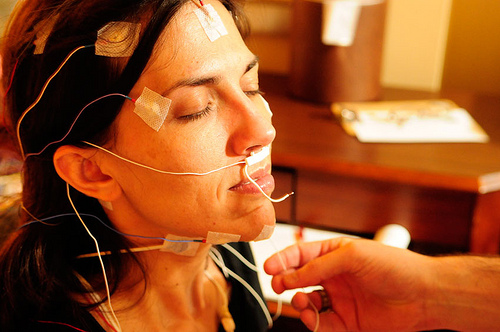Screening of ‘Brains on Trial’
Yesterday, I went to a screening of the PBS documentary ‘Brains on Trial,’ which is a two-part show that focuses on the intersection between neuroscience and criminal law. Many of my friends were going because their professors were giving them extra credit. I, however, decided to go to this screening simply because it sounded really interesting. Anatomy is my only science class for this semester and sometimes I forget to keep up with the latest biological technology. Furthermore, the two-part documentary was partly filmed at Vanderbilt, and because of this, it was introduced by people from the JD/PhD in Neuroscience program.
Did you know that Vanderbilt offers an integrated dual-degree program in which students earn their JD and then their PhD in neuroscience? I definitely did not! But, last night I learned all about it. Basically, the idea for the program began in 2005, and became a reality when the MacArthur Foundation Research Network for Law and Neuroscience generously funded it. Before the documentary, there was a two-person panel consisting of one of the founding professors and a current first-year law student who will begin his PhD work next year. They each shared their stories and their interest in law and neuroscience. This is just another example of a career in science, but not necessarily in medicine. I appreciated this breath of fresh air. It seems like all science majors at the undergraduate level (myself included) want to be doctors. I have great respect for those who want to pursue a career in research.
After the panel, we watched the first part of the series, ‘Brains on Trial.’ Basically, the show took us through a mock trial while consulting both legal and neurological experts. In this first part, we watched the entire trial. Next week, in the final part of the series, we will see how neurological technology can influence the sentencing of a convicted felon. Essentially, the show exposes us to different technologies that can be used to detect lies, confirm facial and spatial recognition and other similar issues. Both the law experts and the scientists agreed that this technology will probably not be used in the courtroom anytime soon, but just knowing that it can be done is exciting. My personal favorite technology was the ability to visually reconstruct scenes from movies that the subjects watched from analyzing brain scans!
I cannot wait for next week, so I can learn about technologies that are actually being used in the courtroom already!
